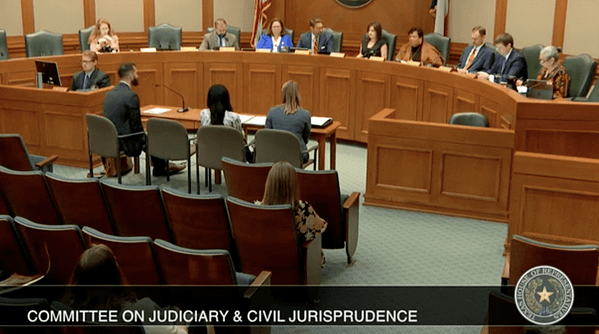Case-level data will drive understanding of court backlogs
Texas 2036 Policy Advisor Luis Soberon told House members on Wednesday that both urban and rural areas of the state stand to benefit from an improved, case-level data collection system to understand better court case backlogs.
Soberon testified before the House Judiciary & Civil Jurisprudence Committee for HB 841, authored by state Rep. Claudia Ordaz, D-El Paso, which would require case-level data collection statewide.
The funding for necessary IT upgrades to capture this data is already written into the House and Senate base budget bills, Soberon said.
The current county-level, aggregate data collection from trial courts offers a limited view of the court backlog, obscures the realities in rural and urban communities in Texas, and fails to capture important and useful information about the judiciary.

Granular data key to understanding backlogs
“For over a quarter of the backlog that Harris County is experiencing, we don’t really have any way of getting any more granular data on what kinds of cases are driving the backlog,” Soberon said.
“HB 841, in particular, is going to be a necessary step to shedding some light on what happens in our district and county courts — not just in our urban courts where there are multiple district courts where it’s hard to kind of drill down in what happens on a court-by-court basis but also in our rural parts of the state.
He added, “Because if you’ve ever seen a jurisdictional map of our district courts, it is complicated and the overlapping jurisdictions of district courts make it difficult when you’re looking at a county’s data to figure out what’s happening in a given court so for both rural and urban Texans alike, this is going to shed a lot of light on what’s happening in our judiciary.”
Soberon also noted that the Texas Judicial Council, the policymaking body for the state judiciary, recommended requiring case-level data in 2018 and again in 2022. Also, the House Judiciary & Civil Jurisprudence Committee recommended adopting case-level data in its interim legislative report.
